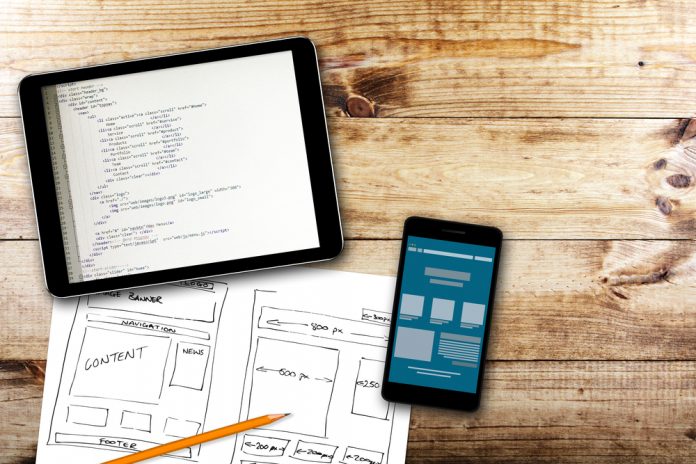Today, smartphones have become an integral part of our daily social and professional lives. Everything we do from entertainment, communication, shopping, and money transfer to studying is executed from mobile devices. According to Statista’s survey done in 2017, mobile users aged between 15 and 40 spent an average of 200 minutes every day on their phone including calling, texting, watching videos and accessing the internet. One of the major factors shaping the mobile usage trend has been the evolution within the mobile industry. Today, even an average income earner can afford a phone with advanced features and apps that helps them go about their daily tasks.
The expanding mobile integration has created a high demand for mobile applications through which users interact with their devices. Every business or organisation that sells, offer services, supports and provides information among other tasks cannot ignore the impact of mobile applications. Many have done it and are reaping the benefits, but it does not stop at that. With the ever-growing demand for new and more advanced apps as well as the ever-changing technology, it has become more difficult to remain relevant in the app market. To remain competitive, mobile developers and businesses must be on the lookout to identify technological trends and consumer needs and align their app development with these factors.
Why You Need Faster Mobile Development Tools
Owing to the large market implementation and flexibility, it makes sense for businesses to target smartphones to increase their market access and consumer engagement. Fortunately, it has become easier even for small enterprises to build mobile apps for their businesses than it was some years back. However, to maintain a decent engagement through mobile you need to accelerate your mobile apps and offer an exceptional user experience. To build an app today is a process that involves creativity of how the apps will function and resources required to develop and run the app. You also need to consider the current and future relevance of the app.
Though there are plenty of great mobile apps on the market already, there is a rising demand for new ones with better features and functionalities. Technology too has been growing at a rapid pace and there is a need for developers to build apps that integrate these new innovations. To accommodate these demands, developers need tactics and modern tools that make the development process faster and efficient. It is important to consider technologies that enable you to complete an app development project in a timely manner. This will also determine pertinent costs to make an app that accommodates your users’ needs. To help you take your mobile initiative to the next level and survive the stiff competition in the market, below are a few technologies that will make mobile development faster and smoother as well as able to profit from modern innovations.
Top Platforms That Will Enable Faster Mobile Development
Whether you are a mobile developer or you have hired a development team to execute your project, it is important to understand available options for your organisation, so as to choose the right tools for the project. Before you start weighing the capabilities and advantages of different technologies for your development process, first you need to determine the most suitable app platform for your business. Depending on your objectives, you can settle on one of the following three options:
- Native App Platform – This helps to build apps that are native to a single platform – either iOS, Android or Windows Devices. The benefit of native apps is that they optimize the user experience and they operate more intuitively and faster because they are built to run on a particular platform. However, this can slow down the process of app development, since you need to build an app for every platform independently. It is only a feasible option if you need to target users of a single platform.
- Web App Platform – Web developers focus on building responsive sites that switch to a different design when accessed from mobile devices. On the other hand, adaptive web mobile apps respond differently for different screen sizes of the mobile devices. Web apps are not specific to a particular mobile hardware.
- Hybrid App Platform – Hybrid apps are installed in mobile devices but run through web browsers. They are slower than native apps but they simplify the development process as you only need to build and maintain a single app for all native platforms saving you time and resources. They are ideal to deliver content.
Once you have chosen the best option for your app development needs, it is now time to choose the right technologies for the development process. Your focus should be to cut down the cost to make an app within the shortest time possible. The following are some of the modern technologies used to develop better mobile apps, faster.
Cross-Platform Mobile App Development Technologies
Cross-platform mobile app development technologies allow developers to write a single code and use it across multiple platforms. This helps you to optimize your project in various ways and to increase the development speed. It also helps to reduce the amount it costs to make an app and to maintain the app after deployment. It is also advantageous in that it increases your business market share as the resulting app can run on a variety of devices irrespective of the platform. In short, it offers a great opportunity to build a wide user base in a short span of time and at the same time reduces your marketing efforts.
Other than enabling a shorter development time and controlling the development and maintenance costs, cross-platform technologies allow code re-use and uniform app development across the mobile devices.
The Leading 3 Cross-Platform Development Tools Are:
- Xamarin – enables developers to design and build apps for Windows, Android and iOS platforms with C# code base, from same IDE and APIs across the platforms. It allows code sharing which reduces the development time and costs.
- Flutter – A product of Google which enables creation of apps for Android and iOS platforms using the Dart programming language. It also allows code sharing to lower down the cost of development and speed up the development process.
- Monocross – An open-source framework that supports C#, .Net, Microsofta and Mono Framework that gives you access to native device APIs in C# language.
Others include; Appcelerator, RhoMobile, PhoneGap, NativeScript and Sencha Touch.
Platform as a Service (PaaS) Development Technologies
PaaS simply refers to a type of cloud based mobile app development platform in which the provider gives the development team access to infrastructure and software enabling them to build an app, run as well as manage the development process from a central point. It gives the developer access to data analytics, integration, mobility and cloud storage without having to purchase or maintain the development technology.
PaasS is offered by a third party and can be accessed through a web-browser through private, public or hybrid clouds. The platform offers a wider flexibility in terms of tools and technologies while reducing the overhead, allowing the development team to focus on the code and functionalities.
- Public Cloud PaaS – Provider offers the major IT tools such as servers, storage, OS and database while the client controls the app deployment.
- Private Cloud PaaS – The provider delivers software or appliance with the client’s firewall in the on-premises data-centre.
- Hybrid Cloud PaaS – It is a mix of private and public PaaS where the provider offers key development services such as design, development, testing and deployment services. Such services may also include project team management, database integration and security.
The Major Benefits of Cloud Mobile Development Technologies Are:
- Access to app development and deployment platforms which save the developer time and resources required to build and maintain IT components needed for the development projects.
- A testing platform to try new designs and programming languages.
- Make it easier to adopt modern development methodologies.
- Reduced skill requirements.
- Easy project management which quickens the development process.
- Access to up-to-date development tools.
The Leading 3 PaaS Include:
- Google App Engine – Provides programming languages, libraries and frameworks for your development needs. It also offers standard and flexible environments to run the apps among many other services.
- Red Hat OpenShift – An open source service that provides self-service tools and automated processes which enable rapid development, long-term life-cycle maintenance as well as multiple language support.
- Microsoft Azure – Flexible enterprise grade PaaS and IaaS that allows building, test and deployment of mobile apps. It supports multiple tools, frameworks and programming languages.
Get started on building your mobile app so you can keep your business competitive on the market. It is important to compare the different technologies to ensure that your choice can help you deliver the right results within your schedule and at the same time save you costs.
Find a Home-Based Business to Start-Up >>> Hundreds of Business Listings.


















































Thanks for sharing!